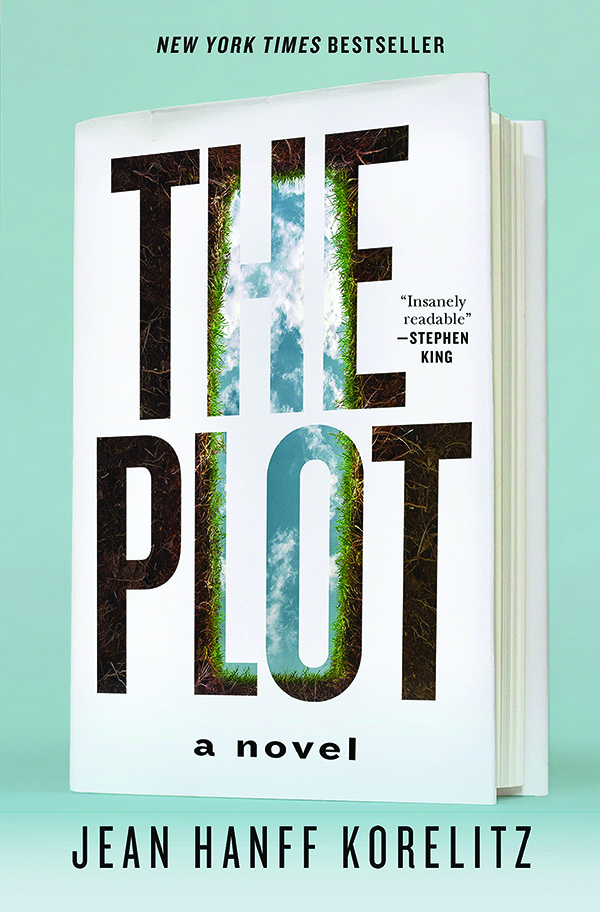Plagiarism is a tricky thing. There are open-and-shut cases, such as stealing sentences or entire passages from other works, but these are mostly limited to undergraduates writing papers on tight deadlines. Then there is the murkier matter of influence and inspiration. No one bats an eye at, say, adapting the plot of an old story to a modern-day setting (turning the Odyssey into Ulysses), but it’s generally frowned upon to lift a story or an insight or an analysis from someone else, rewrite it in your own words, and pass it off as your own. All culture is shared, sure, and if you believe Carl Jung, most stories worth telling exist outside the individual in some murky collective unconscious. On the other hand, writers have bills to pay, reputations to manage, and, if they’re lucky, movie rights to sign away, which can mean the difference between owning a home and renting in a squalid Brooklyn garret well into middle age. But what if someone came up with a great story idea and then died before he or she could put pen to paper? Could someone else crib it then?
This is the setup for Jean Hanff Korelitz’s thriller The Plot. Jacob Finch Bonner is a struggling literary novelist who, after a critically respected but commercially unsuccessful debut, has been falling deeper into obscurity, penury, and professional failure. When we meet him at the beginning of the book, he is teaching creative writing at a third-rate MFA program at the fictional Ripley College in Vermont, having given up on writing another novel and all but conceded that none of his students will ever amount to anything, either. The lone exception is an arrogant, abrasive Vermonter named Evan Parker, who believes he has come up with a plot so compelling, so unexpectedly twisty, that if he can just get it onto the page, it will be a guaranteed ticket to interviews with Oprah Winfrey, A-list movie adaptations, and lots and lots of money. Although loath to share the plot with his fellow students, he reveals it to Jake after some mild coaxing, and Jake is forced to admit, depressingly, that his student is right: He has a surefire hit on his hands.

Fast-forward a few years, and an even broker and more pitiful Jake begins to wonder what happened to his old student. A bit of internet sleuthing reveals that Evan didn’t just fail to publish — he actually died, apparently of a heroin overdose. Facing a future of freelance editing and insecure gig work, and convinced that Evan never shared his plot idea with anyone else, Jake decides to write it up for himself. The resulting novel, Crib, is every bit the hit that Evan thought it would be: a No. 1 bestseller that catapults Jake from obscurity to fame, fortune, a movie adaptation from Steven Spielberg, and, before long, a lovely girlfriend of indeterminate age and a mysterious past. But, no surprise here, the crime on which his riches were founded soon rears its ugly head. An email from someone called “Talented Tom” appears in his inbox, accusing him of literary theft and setting in motion a whodunit as Jake attempts to identify his mysterious persecutor.
As “Talented Tom” and Ripley College suggest, The Plot owes more than a little to Patricia Highsmith’s The Talented Mr. Ripley, about a con artist who murders his wealthy friend and then assumes his identity. To say much more would spoil the plot, which relies, as does Jake/Evan’s fictional plot, on a big twist — suffice it to say that not everyone in this novel is who they seem. Korelitz, a veteran thriller writer with a movie adaption (2013’s Admission) and an HBO series (The Undoing) under her belt, is particularly good on the fragile egos of writers and the tragicomic realities of the publishing industry, with its competing aspirations toward literary worth and commercial success. The book shines especially in its first half, when, similar to Jonathan Ames’s HBO series Bored to Death, it blends struggling-artist meditations on the creative process with the plot-driven trappings of genre fiction.
The actual detective-thriller portions of the book, however, are a bit more uneven — I didn’t see the big twist coming until fairly late, but a quick glance at the Amazon reviews suggests that more experienced genre fans may be more perceptive. The main trouble is simply that after all the buildup about Jake/Evan’s earth-shattering plot — a plot so compelling, unexpected, and out there that readers are described as involuntarily gasping at it on airplanes — the plot of The Plot, when it is finally revealed in its entirety, is spooky, yes, but not the sort of thing that would have me dialing my whole contact list to recommend. But even if it doesn’t clear the impossibly high bar set by the fictional book at its center, The Plot was fun, entertaining, and kept me dutifully turning the pages until the end.
Park MacDougald is the Life and Arts editor of the Washington Examiner magazine.
